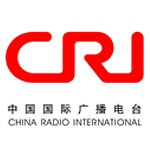This article is published on CBNweekly. Wang Jingyu, consultant of RMG Selection, gives her views on Japanese corporate culture. Japanese companies tend to have longer training period and slower promotion. But steady salary increase and low-risk career development make them popular among job-seekers. Several tips are also offered here to help employees adapt to Japanese companies as soon as possible.
如果聊起日本公司的特点,一般人总能够随口说出点什么,比如严谨、刻板、公司里规矩很多、职场上爱论资排辈等等—在所有的外资公司里,日企算是性格鲜明的一种。
当这些特性被运用到商品中时,往往能带给我们很好的购物体验。比如无印良品的陈列担当会将顾客视线的平均高度作为设计货架的标准;在优衣库遇到巡店的日籍员工时,他们会立即停止手中的工作,向你点头问好—更不用说这两家店里任何时候都被折叠得整整齐齐的衬衫了。
对于日本公司的做事方式,王继跃的感受要更深刻,因为她的职场经历基本都与日本企业相关。她曾经在日本三菱东京日联银行中国总行工作了5年,这是一家日资全资银行。对于这段工作经历,她感受最深的是日资企业的计划性。王继跃曾经参与过一个客户资金管理系统开发的项目。在决定立项之前,公司花了3年的时间进行调研。有了一个初步的规划之后,还花了大量时间去审查各种法规和公司规定,在确保万无一失之后,他们才终于开始了这个系统的研发。
日本公司的确多少都有这样保守的作风,与开放自由的欧美公司形成一个对比,反映到职场环境里,就是日企的入职培训周期、晋升机制也更长。这种风格受到了许多因素的影响,最直接的一种,是循规蹈矩的日本人很喜欢将日本成熟的管理者派往中国市场,而这些人又往往带有很明显的“总部”特质,即日本的公司文化。
“日本最大的问题是保守和怯懦”,优衣库创始人柳井正在为《麦肯锡季刊》(McKinsey Quarterly)写的一篇文章中这样自我剖析,他对日本商业的一个总结是“日本商界人士和公司缺乏个性”。
这两年我们也的确看到日本公司在很多行业的表现都很平淡。曾经在消费电子领域成绩斐然的索尼,近年来甚至让人担心它要变成第二个诺基亚。而在新技术对汽车行业这波革新浪潮里,日本的几个汽车品牌同样反应较慢。而职场上,日企也往往给人一种刻板的印象,这些都影响着它的人才吸收。
美世咨询高级分析师潘晔博主要服务日资客户,在接触了60多家日本大公司之后,他发现这些公司在中国市场面临着不小的人才竞争。“中国市场越来越成熟,人才竞争开始激烈,日本企业会面临一些人才流失,这让它们开始改变一些策略,在人力资源管理上变得更本土化。”他对《第一财经周刊》说道。
其中一个细小的佐证是日本公司在选择人才的时候更加灵活。东芝医疗中国区人力资源部副总监江涛在进行招聘时,已经不会特别注重候选人的日资背景或日语能力。“对专业技术背景、行业经验及团队合作等方面会比较看重。”她这样总结道。
尽管日企由于它的谨慎可能会带来比如晋升缓慢这样的问题,或许不太适合那些想要在职业发展初期就能获得快速成长和显著晋升的人。不过我们也从美世咨询最近发布的一些数据中看到,日企的这些特性也使得它们往往能提供更稳定的薪酬涨幅和职业发展。因此我们认为仍然有必要从职场角度为你解读一下日本公司。
A 除了严谨,还有一些事你得做好心理准备 A Except rigorous work-style, there is more you need to know about Japanese corporate culture.
培养周期长 Long Training Period
无印良品在成都开出一家旗舰店时,这家公司也打算把IA(Interior Advisor)和SA(Styling Advisor)两种服务引入中国。像这样的看起来类似于专业导购的差事,无印良品竟大费周张地从中国员工中挑出10名,两次去日本进行半个月的封闭培训。
这并不是个案。在一般的日企里,人才培养的周期往往也长达3至5年。它们通常采用的一个方式是轮岗制度。潘晔博也有这样的观察,“例如,从业务轮岗到人事部门,再从人事部门到行政部门,日企对人的培养是非常综合的。”他告诉《第一财经周刊》。
即便是专业性强的制造业也是如此。一个叫做TSP(Trainee Sales/Service Program)的项目从2005年就开始在东芝医疗内部形成。这家公司为没有任何医学背景的销售和服务岗位人员进行专业知识培训。因此尽管日企的培训可能是很长的时间成本,但公司人也能学到一些东西,并同时发现更多职业的可能性。
晋升缓慢 Slow Promotion
王继跃花了3年的时间,才从经营职能的岗位,转移到偏后台管理的岗位。在这家日资银行当中这相当于完成了一次晋升。
员工序列制是日企比较明显的一个升迁机制。“根据你的资历来排你的级别,在一个企业中,下级员工必须等到上级职位产生空缺,才有被提升的可能。”罗迈国际猎头顾问王婧娱告诉《第一财经周刊》。
“In a Japanese corporate, your rank depends on your experience. One will not be promoted until his superior left his position. ” Consultant of RMG Selection Wang Jingyu told CBNweekly.
比如在一家日资公司中,假设某部门的部长职位空缺,如果该部门的其他员工工作年限没有达到部长级别—通常是15年以上—那么将从其他部门借调部长。这个时候,长期的轮岗培训也发挥了作用。根据潘晔博和美世咨询的观察,通常全行业30岁至31岁的员工可以实现经理级别的职级,但是在日本企业需要32岁。
从美世咨询发布的数据中我们也观察到,随着职级的递增,日企员工的薪酬涨幅并没有其它企业来得快,某种程度来说,日企的晋升动力没那么大。
B 日本公司靠什么吸引人?Why is Japanese corporate is attractive to job-seekers?
薪酬福利还算有竞争力 Tempting Salary and Bonus
“日企的薪资还是有保障的,”王婧娱说,“与欧美企业容易受市场影响相比,这算是种优势。”王婧娱服务过的东芝、奥林巴斯等公司都推行“自动涨薪制”,即薪酬与工作年限相关,而不随着公司效益而波动。
“Japanese corporate offers steady salary”, said Wang, “Compared to that of western company,salary of Japanese corporate is unlikely to be influenced by the changing market.” Toshiba, Olympus and other Japanese companies she served for all implemented kind of “automated salary increase” system. In other words, salary is related to one’s working term rather than a corporate’s profits.
从美世的一份报告中也可以看出这种薪酬优势。9.1%是日资公司2015年预测的薪酬涨幅,这个数字超过了中国一线城市全行业7.9%的平均薪资涨幅。
这也是王继跃最初选择进入日资公司的原因之一,除非经济萧条—这实在有点极端—不然王继跃的薪酬每年会保持10%至20%的增长。
职场风险小很多 Lower Risk in Career Development
王继跃认为在日企银行工作,除了能够给她带来稳定增长的收入,也降低了职场发展的风险。王继跃发现自己身处的公司当中,大约90%的人都按部就班地工作,稳定性是他们所看重的。
美世咨询2013年的一次调研显示,日资企业的被动离职率为3.3%,而当时人才市场上的被动离职率是5.3%。2014年上半年,日企的这个数字下降到了1.2%。
C 日企偏好温和型和结果导向型员工 C Japanese corporate has a preference for mild and result-oriented employees.
热衷于尝试新鲜的东西、对创业曾有很大的幻想、渴望相对自由开放的职场环境……真实的日本公司可能会让你有点失望。
我们并不是说你的创意想法在日本公司就无法得到实施,只不过过程比你想的要严谨。日本公司偏好性格温和且行事规范的人。“相对于完全的结果导向,上级更希望员工能用正确的方法做正确的事情。”潘晔博这样总结。
日企从面试时就开始观察你是否具有这样的特性。王婧娱曾为一家医疗行业的日本公司推荐过两名候选人。其中一位具有日本留学背景,但他在与面试官沟通的时候,多次打断对方,表达自己的观点。另一位虽然条件及能力稍微逊色,但由于谦逊的表现最终被这家日本公司录用。
Wang once recommended two candidates for a Japanese corporate in medicare sector. One of them repeatedly interrupted the conversation and expressed his own opinions during the interview. Despite the fact that he used to study in Japan, he finally failed to win the interviewer’s heart. However, the other candidate got hired for his modest performance, though his background and ability were inferior.
结果导向型的人也是日本企业欢迎的一种。这类人往往懂得规避风险,执行力比较强。“日本雇主可能不需要员工有太多新想法,但是要有很好的执行力。把既有的事情做好,同时较强的适应能力能帮助公司人快速习惯在日本企业里各个方面对工作的严谨态度。”王婧娱说。
“Japanese employers may not want many new ideas from employees. Instead they require workers to act quickly. Those who take good care their share of the job and have strong adaptability can soon get used to the rigorous work-style in Japanese Corporate.” said Wang.
D 两个Tips帮你更好地适应日企 D. Here are two tips to help you get accustomed to Japanese corporate.
调低心理预期 Lower Your Expectations
如果你是一个进取心很强的人,那么在日资企业工作就需要调低自己的心理预期。王继跃也尝试过这么做,不过最后她还是选择离开这家日本公司。她感觉自己虽然获得了晋升和加薪,但在做的事情却是比自己低级别的同事也能完成的,对个人能力的提升实在有限。现在她在一家律师事务所工作,她觉得自己的可能性提高了许多。王继跃的故事或许可以给你一个警惕。如果打算继续从事这样一种稳定的工作,那么多少需要调整心态。不过你也不妨变得积极一些,例如支持部门的员工,通过轮岗制调职到相对专业的岗位工作,就可以把握一些机会。
长远规划很重要 Better to Make a Long-term Plan
因为培训和晋升周期比其他公司更长,所以一份更清晰的职业规划对你的帮助可能更大。“从长期规划,也有利于自我成长,”潘晔博说,“日企更倾向于从本公司提拔管理层,而且选拔机制是相对公平的。越来越多的中国人正在获得原来日本人的位置。所以公司人应该做好长远职业规划,利用好这个有利的趋势。”
阅读原文,请点击:http://www.cbnweek.com/v/article?id=16565 Read the original article, please click: http://www.cbnweek.com/v/article?id=16565





